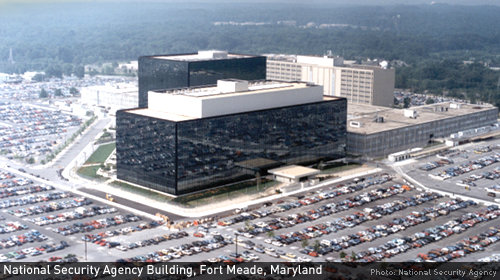
The └¤░─├┼┐¬Ż▒Żß╣ű filed an appeal on Thursday in New York challenging the dismissal of our lawsuit against the NSA's mass call-tracking program. Through the program, the government collects records on every call made and received in this country, allowing it to construct detailed maps of Americans' everyday lives.
In a decision with grave implications for civil liberties and privacy in a digital age, Judge William Pauley ruled last week that the government's telephony metadata program is lawful under Section 215 of the Patriot Act and under the Fourth Amendment. We strongly disagree on both counts, and we're in good company. Following Edward Snowden's disclosures, Rep. Jim Sensenbrenner (R-Wis.), the lead author of the Patriot Act, introduced a bill to significantly rein in important aspects of NSA surveillance, and end the bulk collection of metadata under the mass call-tracking program. And in a lawsuit similar to ours filed in Washington, D.C., Judge Richard Leon ruled last month that the metadata program is very likely unconstitutional. "I have little doubt that the author of our Constitution, James Madison, who cautioned us to beware 'the abridgement of freedom of the people by gradual and silent encroachments by those in power,' would be aghast," he wrote.
Judge Pauley arrived at the opposite conclusion, in part because, in his view, the call-tracking program is "effective." However, there's no evidence that this is true. To the contrary, (not to mention three senators that sit on the Senate Select Committee on Intelligence) found that the program had not been essential to preventing any terrorist attack.
The └¤░─├┼┐¬Ż▒Żß╣ű's Jameel Jaffer said on Thursday:
We believe that the NSA's call-tracking program violates both statutory law and the Constitution, and we look forward to making our case in the appeals court. The government has a legitimate interest in tracking the associations of suspected terrorists, but tracking those associations does not require the government to subject every citizen to permanent surveillance. Further, as the president's own review panel recently observed, there's no evidence that this dragnet program was essential to preventing any terrorist attack. We categorically reject the notion that the threat of terrorism requires citizens of democratic countries to surrender the freedoms that make democracies worth defending.
As Americans learn more about the scope and nature of the NSA's activities, the tide is turning against mass surveillance.
For more on Judge Pauley's ruling, watch Jameel on Democracy Now!, where he appeared last week along with journalist Glenn Greenwald:


%3Ciframe%20allowfullscreen%3D%22%22%20frameborder%3D%220%22%20height%3D%22281%22%20src%3D%22%2F%2Fwww.youtube.com%2Fembed%2F4RROPY66e9Q%3Fautoplay%3D1%26version%3D3%22%20width%3D%22500%22%3E%3C%2Fiframe%3E
Privacy statement. This embed will serve content from youtube.com.
Learn more about government surveillance and other civil liberty issues: Sign up for breaking news alerts, , and .

